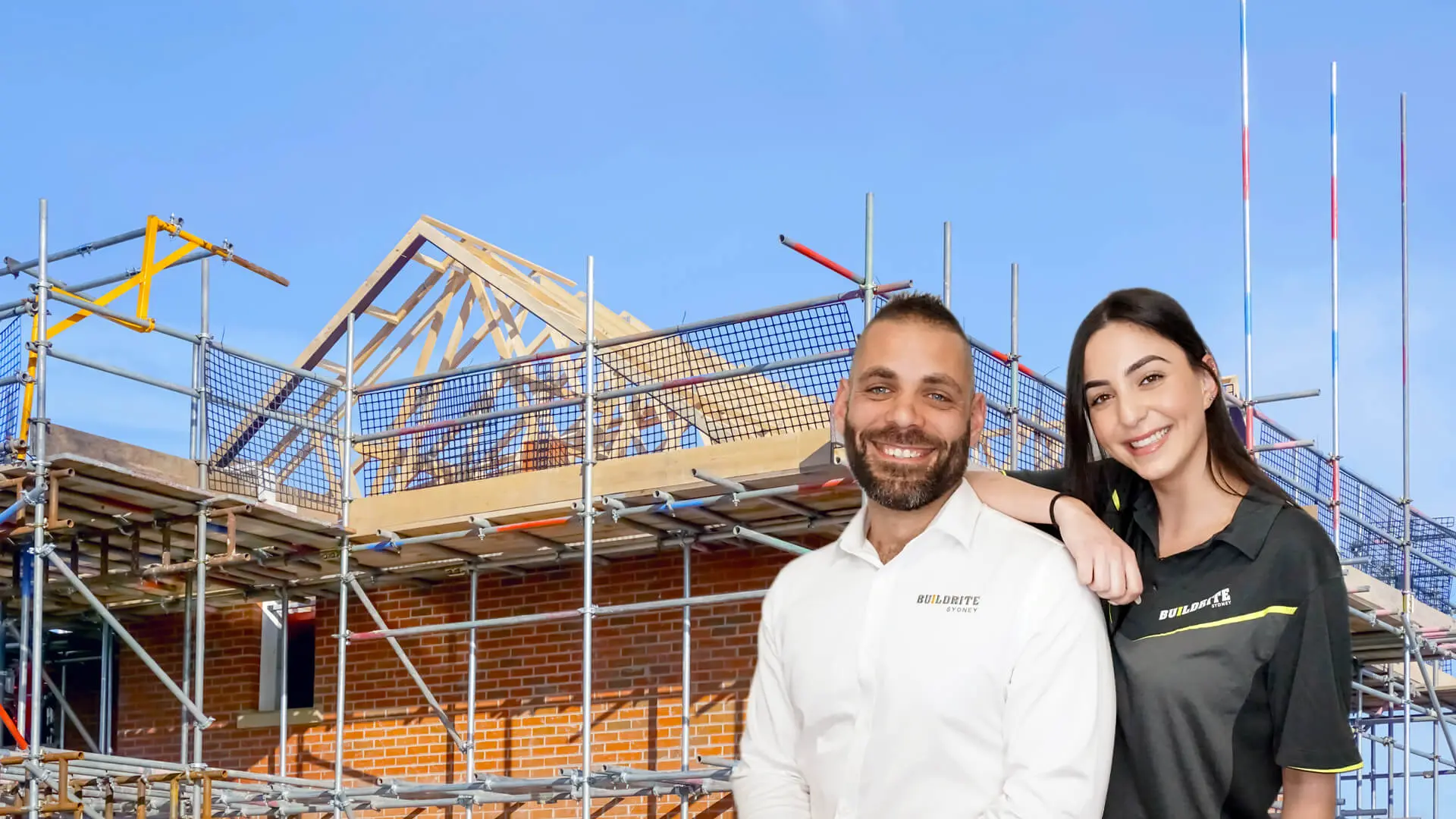To become a builder, you don’t need a specific degree. Vocational training or an apprenticeship is typically sufficient.
Builders play a crucial role in construction, involving tasks such as planning, building, and maintaining structures. While formal education is not mandatory, many builders benefit from vocational courses in construction management, carpentry, or masonry. Hands-on experience through apprenticeships provides essential skills and knowledge.
Certification and licensing may be required, depending on the region and specialization. Building a successful career in construction demands a strong work ethic, attention to detail, and a commitment to safety standards. Continuous learning and staying updated with industry advancements can enhance your expertise and career prospects.
Educational Pathways
Becoming a builder involves several educational pathways. Understanding these pathways helps in making an informed career choice. Below are the main pathways to consider.
Vocational Training
Vocational training offers a hands-on approach to learning. It equips you with practical skills needed for construction work. Many vocational schools provide courses in carpentry, masonry, and other building trades.
- Certificate Programs: These programs take six months to a year to complete.
- Diploma Programs: These are more comprehensive and last for about two years.
Vocational training is a quick way to enter the building industry. It provides job-ready skills that employers value.
Apprenticeships
Apprenticeships combine on-the-job training with classroom instruction. They usually last for three to four years. During this time, you work under the supervision of experienced builders.
- Earn While You Learn: Apprenticeships allow you to earn a salary while gaining experience.
- Industry Certification: Upon completion, you receive a certification recognized by industry bodies.
Apprenticeships are highly valued in the construction industry. They offer a blend of theoretical knowledge and practical skills.
| Pathway | Duration | Outcome |
|---|---|---|
| Vocational Training | 6 months to 2 years | Certificate or Diploma |
| Apprenticeships | 3 to 4 years | Industry Certification |

Credit: contractortrainingcenter.com
Relevant Degrees
Interested in becoming a builder? The right degree can set you apart. Here are some relevant degrees that can help you get started:
Construction Management
Construction Management degrees focus on the planning, coordination, and control of construction projects. This degree covers:
- Project Management
- Construction Technology
- Building Codes and Standards
- Safety Management
Graduates learn how to manage resources, timelines, and budgets. They also gain skills in communication and leadership. These are key in construction projects.
Civil Engineering
A Civil Engineering degree is another excellent choice. This degree provides knowledge in:
- Structural Engineering
- Geotechnical Engineering
- Environmental Engineering
- Transportation Engineering
Civil engineers design and oversee the construction of buildings, roads, and bridges. They ensure structures are safe and efficient. This degree also covers advanced mathematics and physics, which are crucial in construction.
Certifications And Licenses
Becoming a builder involves more than just skills and experience. You need various certifications and licenses to work legally and safely. These credentials ensure that you meet the industry standards and regulations. Let’s dive into the different requirements and certifications.
State Requirements
Each state has its own licensing requirements for builders. Here are some examples:
| State | License Type | Requirements |
|---|---|---|
| California | General Contractor | Pass exams, 4 years of experience |
| Texas | Residential Builder | Pass exams, proof of insurance |
| Florida | Certified Contractor | Pass exams, background check |
Specialized Certifications
Specialized certifications can boost your career. They show your expertise in specific areas. Here are some popular certifications:
- LEED Certification: Focuses on green building practices.
- OSHA Safety Certification: Ensures safety on construction sites.
- Project Management Professional (PMP): Enhances project management skills.
These certifications require passing exams and meeting specific criteria. They are valuable for your professional growth.

Credit: www.kentuckianaworks.org
Skills And Competencies
Becoming a builder requires more than just a degree. You need a mix of technical skills and soft skills. These skills and competencies will ensure you succeed in your building career.
Technical Skills
Technical skills are essential for any builder. These skills include:
- Blueprint Reading: Understanding architectural drawings is crucial.
- Mathematics: Builders use math for measurements and calculations.
- Tool Proficiency: Knowing how to use hand and power tools safely.
- Coding Knowledge: Familiarity with building codes and safety regulations.
- Project Management: Managing time and resources efficiently.
Soft Skills
Soft skills are equally important for a builder. These skills help in communication and teamwork:
- Communication: Clear communication with clients and team members.
- Problem-Solving: Finding solutions to unexpected issues on-site.
- Attention to Detail: Ensuring precision in every task.
- Teamwork: Working well with others to complete projects.
- Time Management: Meeting deadlines and managing workloads effectively.
Having a balance of technical and soft skills is vital. It ensures you are not just a good builder but a great one.
Alternative Routes
Many people dream of becoming a builder. Not everyone can or wants to attend a traditional college. Thankfully, there are alternative routes to becoming a builder. These routes can be just as effective as earning a formal degree. Below, we explore some of these paths.
On-the-job Training
On-the-job training is an excellent way to learn building skills. You gain experience while working under experienced builders. This method allows you to earn money while you learn. Many companies offer apprenticeships. These programs usually last a few years. Here are some benefits of on-the-job training:
- Hands-on experience
- Learn from experts
- Earn while you learn
- Network with professionals
On-the-job training often leads to full-time employment. You build a solid resume and gain valuable skills.
Self-study And Online Courses
Self-study and online courses are great options for aspiring builders. Many websites offer courses in construction and building. These courses are flexible and can fit any schedule.
Popular online learning platforms include:
- Udemy
- Coursera
- edX
- LinkedIn Learning
These platforms offer courses on:
- Construction basics
- Blueprint reading
- Carpentry skills
- Project management
Self-study requires discipline and motivation. Many learners find it rewarding and cost-effective. Online courses often provide certificates that can boost your resume.

Credit: www.buildritesydney.com.au
Career Progression
The journey to becoming a builder involves a well-defined career progression. Understanding each stage can help you navigate your path efficiently. From entry-level positions to advanced roles, each step brings new skills and responsibilities. Let’s explore the career progression in the building industry.
Entry-level Positions
Starting as a builder often begins with entry-level positions. These roles provide foundational skills and hands-on experience. Common entry-level positions include:
- Apprentice Builder
- Construction Laborer
- Helper
An Apprentice Builder works under experienced professionals. They learn essential skills like reading blueprints and using tools. Construction Laborers handle various tasks, from site preparation to material handling. Helpers support skilled workers, gaining insight into different aspects of building.
Advanced Roles
With experience and additional training, builders can advance to more specialized roles. These positions offer greater responsibilities and higher pay. Advanced roles include:
- Journeyman Builder
- Site Supervisor
- Project Manager
A Journeyman Builder has completed their apprenticeship and works independently. Site Supervisors oversee construction sites, ensuring safety and efficiency. Project Managers plan and coordinate entire projects, from budgeting to completion.
To achieve these advanced roles, builders often pursue further education. Degrees in construction management or civil engineering can be beneficial. Continuous learning and gaining certifications also play a crucial role in career advancement.
Industry Insights
Understanding the construction industry can help you decide on the right degree. This section provides insights into the job market trends and the future of construction.
Job Market Trends
The construction industry is growing rapidly. Demand for skilled builders is increasing. Technology advancements create new opportunities for builders. Builders with tech skills have an edge. Green construction and sustainability are also trending. Builders who know eco-friendly methods are in high demand.
| Trend | Description |
|---|---|
| Technology | Use of software and automation in construction. |
| Green Construction | Focus on sustainable and eco-friendly building methods. |
| Skilled Labor | High demand for builders with specialized skills. |
Future Of Construction
The future of construction is bright and promising. Smart buildings are becoming the norm. Builders need skills in IoT and automation. 3D printing is revolutionizing the industry. Builders must adapt to these changes. The focus is on sustainable practices and efficient resource use.
- Smart buildings with IoT and automation.
- 3D printing for faster and cheaper construction.
- Sustainable practices to save resources.
Staying updated with these trends can help you excel. Choose a degree that covers these emerging technologies. This ensures a successful career as a builder.
Frequently Asked Questions
What Is The Best Degree For Construction?
The best degree for construction is a Bachelor’s in Construction Management. It covers project planning, cost estimation, and safety regulations.
Do Builders Have To Be Licensed In Texas?
No, builders in Texas do not need a state-issued license. Local requirements may vary, so check with your city or county.
Who Regulates Builders In Texas?
The Texas Department of Licensing and Regulation (TDLR) oversees builders in Texas. Local municipalities also enforce building codes.
How To Learn About Building Houses?
Learn about building houses by taking online courses, watching tutorials, reading books, and gaining hands-on experience. Join building workshops.
Conclusion
Choosing the right degree is crucial for becoming a successful builder. Focus on hands-on experience and relevant certifications. An education in construction management or civil engineering can provide a solid foundation. Remember, continuous learning and skill development are key in this ever-evolving industry.
” Start your journey today and build a promising future. “










